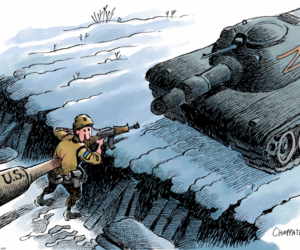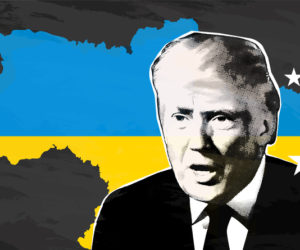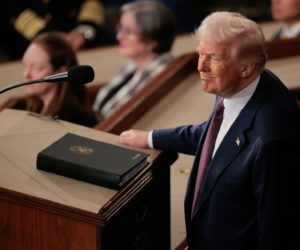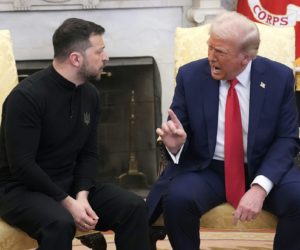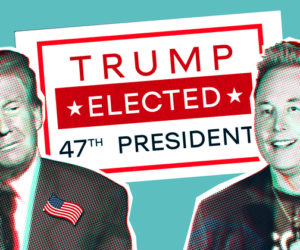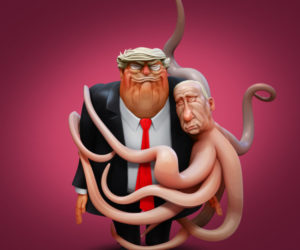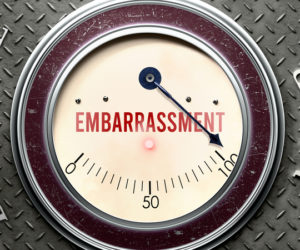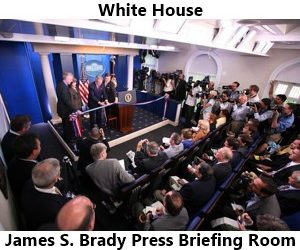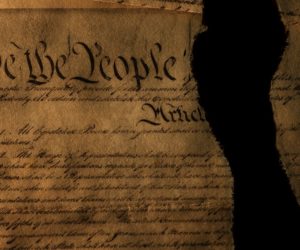When you think of Internet censorship, countries that spring to mind might range from China to Iran. But I doubt most people, most Americans anyway, associate the U.S.A. with Internet censorship. Perhaps you should.
Reading about COICA, S. 3804 (bill text), Combating Online Infringement and Counterfeits Act, I could not help but wonder about its linkage to ACTA, the global Anti-Counterfeiting Trade Agreement.
The ACTA is a secretly negotiated and as yet unsigned executive agreement (not a treaty – treaties require Congressional sign-off) between 37 countries. The ACTA, if signed, would spawn a global organization focused on intellectual property rights enforcement that would be separate from the World Trade Organization (WTO), the World Intellectual Property Organization (WIPO) or the United Nations.
ACTA Back Story
ACTA negotiations have been incredibly secret but were jumpstarted by the Bush Administration and Japan in 2006. Congress is out of this loop; this is an executive branch deal that requires no Congressional approval. Talk about expanding the power of the executive office.
- Round 1: Geneva, June 2008
- Round 2: Washington, D.C., July 2008
- Round 3: Tokyo, October 2008
- Round 4: Paris, December 2008
Four global discussions over the course of seven months seems to be unprecedented speed for an issue with no flashpoint or mass media-stoked crisis. In comparison, think of the laborious and protracted discussions on global food policy (and resultant headlines), a la the World Trade Organization (WTO).
Five additional discussion rounds took place under the Obama Administration from July 2009 to June 2010. The first public draft was released in April 2010, but there have been some leaks along the way.
ACTA Overview
Most of what I know of ACTA comes from the writing of Michael Geist, the Canadian copyright and intellectual property lawyer. In his overview of the Internet chapter of ACTA, he writes (emphasis added)
The Internet chapter raises two additional issues. On the international front, it provides firm confirmation that ACTA is not a counterfeiting treaty, but a copyright treaty. These provisions involve copyright policy as no reasonable definition of counterfeiting would include these kinds of provisions. […] When combined with the other chapters that include statutory damages, search and seizure powers for border guards, anti-camcording rules, and mandatory disclosure of personal information requirements, it is clear that there is no bigger IP issue today than the Anti-Counterfeiting Trade Agreement being negotiated behind closed doors this week in Korea.
There has been some U.S. media coverage, but not much considering that this is a corporate-driven secretly negotiated agreement. Where in the world is our watchdog press? MIA. From November 2009, Rob Pegoraro writes in the Washington Post:
Want a program to copy a DVD to your iPod? You can’t pick one up in a shop, thanks to the 1998 vintage Digital Millennium Copyright Act. The DMCA bans that software, along with other tools that might help you use movie downloads, e-books and other “protected” files in ways not specifically allowed by their vendors.
[…]
This Anti-Counterfeiting Trade Agreement, or ACTA, represents an attempt by the United States and other countries to set common rules for violations of intellectual-property laws. The United States hopes to use ACTA to export its laws…
[…]
The Bush and Obama administrations have cited national security concerns to justify withholding further information. They have revealed ACTA texts only to selected individuals (few representing consumer interests) who sign non-disclosure agreements.
And from the Irish Times (same time frame):
There is really no accountability to speak of regarding what goes into the Acta. Not only can you not write a letter to the Acta negotiators, you can’t see what they’re talking about, nor can your local representative politician. The Acta represents the highest level of abstraction away from the democratic process imaginable.
However, Geist explains that the final version of the agreement released earlier this month is much more flexible. The U.S., it seems, gave up on its attempt to convert the world to a global DMCA:
[E]arly ACTA drafts adopted a restrictive approach to digital locks that effectively required broad legal protection against virtually any attempt to circumvent technological protection measures (often referred to as picking a digital lock).
These restrictions extend well beyond instances where someone may be engaged in commercial copyright infringement and include consumers seeking to access foreign-bought DVDs, making a backup copy of an e-book, transferring music from a copy-protected CD to their iPod or jailbreaking a cellphone to install software programs of their choice.
The near-final ACTA is much more flexible. It now requires “adequate legal protection and effective legal remedies” against circumventing digital locks but references to access controls, such as those used on DVDs, have been removed. Moreover, ACTA now expressly permits a broad range of exceptions, including standard limitations to copyright such as fair use.
In other words, the U.S. gave up in its direct attempt to convert the world to a worldview proposed by Hollywood and the RIAA. Enter COICA as a backdoor attempt.
COICA Back Story
Although COICA was introduced only last month, there is far more news coverage (although that’s not saying there is a lot) of it than there is of ACTA.
Under this bill, sponsored by Sen. Pat Leahy (D-VT) and 16 co-sponsors, the Department of Justice would have the authority to arbitrarily — that is, without due process — direct domain registrars to block access to websites under a mantle of protecting businesses from piracy and intellectual property theft as well as from the sale of counterfeit goods. The Leahy argument is that “companies are losing revenue from pirated movies, shows, handbags and pharmaceuticals that directly trickle down to job cuts and turmoil in their sectors.” (There’s the clear ACTA tie-in.)
“There is an epidemic of digital theft on broadband Internet,” said Rick Cotton, general counsel for NBC Universal and chairman of the U.S. Chamber of Commerce cross-sector Coalition Against Counterfeiting and Piracy. “This bill is actually quite a narrow, focused effort to address a portion of that epidemic.”
Not surprisingly, bill proponents trot out the same tired and logically-flawed arguments we’ve heard from the newspaper industry.
“If someone stole a TV and ran out to the street and started offering it for sale, the thief doesn’t have a First Amendment right for the sale of the stolen product. The police would arrest him,” said Howard Gantman, a spokesman for the Motion Picture Association of America.
These arguments are based on the economics of an atom-based world, one where goods are both rivalrous and excludable and where scarcity affects monetization. (Reduce supply in the face of demand and watch prices, and profits, increase, if the market is anything other than perfectly competitive.) That is not the market of digital information, which is non-rivalrous (without digital locks) and non-excludable (without pay walls). The digital information market has the characteristics of a public good, which makes extracting money from it really, really hard if your mindset is stuck in the past.
Under the proposed bill, which has been referred to the Senate Judiciary Committee, chaired by Leahy:
- The Department of Justice would have the authority “to seek preliminary court orders against any Internet domain that it determines is peddling infringing goods. […] domain registrars and other operators of a domain name system servers would [then be] required to prevent access to any domain name served with a court order.”
- The Department of Justice would have the authority “to order the shuttering of web sites hosted beyond US borders, but which are using U.S.-based registrars.”
Those supporting the bill come from the ranks of usual suspects, “rights holds” like the American Federation of Television and Radio Artists, the Directors Guild of America, the International Alliance of Theatrical Stage Employees and the Screen Actors Guild.
Those opposed also come from the ranks of usual suspects such as the Electronic Freedom Foundation, the Center for Democracy and Technology and various library associations. Last month, they sent a letter (pdf) to the Senate Judiciary Committee (emphasis added)
Given the fundamental due process values of our nation […], Congress must carefully consider whether it wishes to authorize Justice Department officials to blacklist websites in a manner subject to little process and limited judicial review. Without judicial oversight, these blacklists could reach the websites of political candidates and advocacy groups. Numerous political campaigns have received copyright cease-and-desist letters or infringement notices, including candidates very recently in this cycle from both parties.
Ah, the DMCA and the law of unintended consequences! The letter continues:
The potential for blacklisting for “facilitating” infringement, as so broadly defined in this bill, can undermine U.S. secondary liability law as established in Sony v. Universal, and ignores the culpable intent requirement of MGM v. Grokster. For example, would the listing of a website on the blacklist constitute constructive knowledge for contributory infringement purposes, if a service provider did not discontinue providing service to a website after it was listed? More generally, the new definitions and requirements also raise serious questions about the effect of this bill on existing copyright exceptions, limitations and defenses upon which a significant sector of the U.S. economy relies.
Those opposed also include Internet luminaries like Sir Tim Berners-Lee, the father of the WWW:
We all use the web now for all kinds of parts our lives, some trivial, some critical to our life as part of a social world. In the spirit going back to Magna Carta, we require a principle that: No person or organization shall be deprived of their ability to connect to others at will without due process of law, with the presumption of innocence until found guilty. Neither governments nor corporations should be allowed to use disconnection from the Internet as a way of arbitrarily furthering their own aims.
For much of the 20th century, oligarchs have made bucket-loads of money by being able to monetize culture through increasingly-generous copyright protections (every time Mickey Mouse was about to lose his, critics contend). They will not give up those cash cows quietly, even as digital technologies render their opposition moot, in the long run.

What is fascinating, sitting on the sidelines, is seeing how this battle has seemingly shifted from a venue where Congress was not a player to one where it is the principal actor, an actor with deep financial ties to the entertainment industry.
Known for gnawing at complex questions like a terrier with a bone. Digital evangelist, writer, teacher. Transplanted Southerner; teach newbies to ride motorcycles. @kegill (Twitter and Mastodon.social); wiredpen.com




